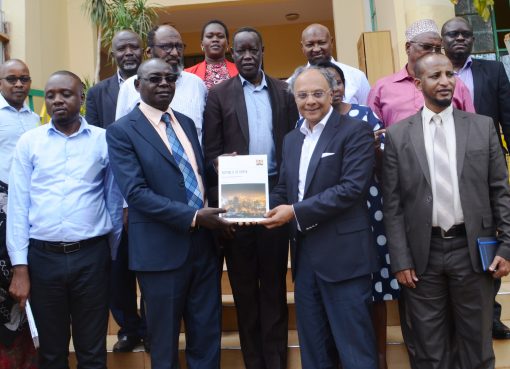Hundreds of commuters plying various routes in Kajiado County were stranded Wednesday after police launched a crackdown on Public Service Vehicles (PSVs) that have not complied with Covid-19 safety regulations.
The operation which began Monday caught many commuters unaware as most PSVs kept off the roads to avoid being impounded.
Few vehicles that were in operation after complying with the rules hiked their fares to various destinations with passengers being forced to pay Sh. 250 from Kajiado to Kitengela up from sh.150.
Those headed to Nairobi from Kitengela town were being charged Sh. 200 up from the usual Sh. 100.
Commuters plying the Ongata Rongai – Nairobi route had to walk for long distances as the few matatus in operation changed drop-off points in a bid to avoid being impounded over Covid-19 compliance.
Over 100 vehicles and motor bikes were impounded in Ngong and Ongata Rongai towns for operating without the required health compliance certificates.
Matatu Sacco’s plying the Kajiado- Kitengela route completely kept off the roads leading to a transport paralysis for the better part of the day.
Boda boda operators took advantage of the situation to ferry passengers to various destinations but however hiked their prices worsening the situation for the stranded passengers.
Joyce Naserian, a passenger who was heading to Nairobi from Kajiado town said she was forced to go back home as there were no matatus at the bus stage.
Naserian said she had waited at the bus stop for over four hours and the only matatu available was charging Sh 400 to Nairobi up from the usual Sh 200.
“I have been forced to go back home since there are no matatus heading to Nairobi. I have been waiting for hours and only one vehicle came but it was charging Sh. 400 and I cannot afford,” she said.
Kajiado North Deputy County Commissioner Tom Anjere who led the operation in Ngong and Ongata Rongai towns said the crackdown would continue until all operators comply with the Covid-19 safety guidelines.
The DCC said police would conduct inspection on all vehicles to check if passengers have adhered to stipulated sitting arrangement, if the crew had valid licenses and thermal guns to check temperature of passengers before boarding.
He appealed to those working in the matatu sector to adhere to the given health protocols to curb spread of covid-19, currently on the rise.
“All public service vehicles will be subjected to thorough inspection to ensure adherence to the Ministry of Health guidelines on travel safety. Those who observe the new guidelines will be allowed to operate without interruptions,” said Anjere.
However, matatu operators faulted the crackdown saying the requirements needed for one to operate were expensive and hard to achieve yet they were already making losses.
They complained that obtaining a Covid-19 health certificate was a very frustrating process as the cost of testing was high.
John Kamau, a matatu driver plying the Ngong- Nairobi route, said he has been to Kenyatta Referral Hospital five times looking for a Covid-19- free certificate but has been unsuccessful as he is always told that there are no reagents.
Kamau said he was referred to a private testing facility but he cannot afford the Sh. 5000 to Sh.8000 required for testing.
“I am appealing to the government to ease the strict regulations required for matatus to operate. Obtaining a COVID-19 free health certificate is an uphill task, the operators are ready to comply but cannot afford the high costs of the tests,” said Kamau.
The Government in July announced that public transport operators would be required to comply with a raft of guidelines on the pandemic to be allowed on the roads.
They include social distancing in the vehicle between the seats, hand sanitizers on board, surgical masks for the crew, functional thermal guns, hand washing facilities available at SACCO ticket booking office, physical distancing of 1.5M at the SACCO ticket booking office, openable windows in the office.
For inter-county travel, the operators must obtain a certificate from the Ministry of Health affirming compliance.
By Rop Janet




